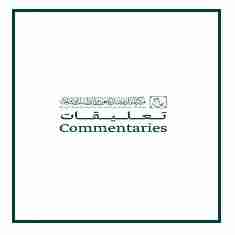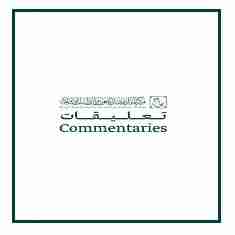Research Papers
Number:
Author:
In this paper Dr. Dania Kolielat ElKhatib discusses generally the elements needed to start a lobby as well as the tools needed to build it. It is written with an Arab Gulf audience in mind. The paper gives a general overview on lobbying, on the Arab American community and its organisations, on the narratives through which Arab states can engage them, and on the structure needed to create the type of coordination among different Arab American groups which will ultimately result in a “lobby.”
The paper consults literature on the history and methods of lobbying and does not by any means represent a concrete
Number:
Author:
Number:
Author:
English translation currently unavailable.

Number:
Author:
Research Fellow at the King Faisal Center for Research and Islamic Studies, Sebastian Maier writes a commentary titled: “Calm before the storm? Hezbollah solidifies its foothold along the Lebanese-Syrian border.” Published on the 1st of May, 2016.
Maier begins by citing the satellite imagery acquired by DigitalGlobe in early April 2016, which was confirmed by the global intelligence company Stratfor. The imagery Maier writes, “appeared to confirm a buildup of military fortifications, including artillery caches and defense positions, erected by Hezbollah in a
Number:
Author:
The term “Huizu” is the formal name of the Hui–Hui zu (Hui–Hui ethnic group) in contemporary China. It is derived from the Chinese Pinyin transcrip on system, deriving from the pronuncia ons of two separate Chinese characters for the words “Hui” and “zu,” each of which possesses an independent meaning, but which obtain a new meaning when they are combined to form “Huizu” (following the normal pa ern of Chinese word forma on). The former syllable is an abbrevia on of “Hui–Hui,” a term referring to an ethnic group that emerged from the Xiyu (the Western Regions beyond present– day Xinjiang) from the mid&ndas
Number:
Author:
English Translation Currently Unavailable
Number:
Author:
Pundits have long debated France’s Arab policy, which was launched by Charles de Gaulle and was seen as France’s “third way” between the two main powers of the Cold War era. is foreign policy explained France’s unique approach to the Palestinian ques- tion – which was, for decades, the only controversial issue in the Middle East – and then to the con ict in Lebanon, especially dur- ing the Civil War from 1975 to 1990.
Number:
Author:
This study attempts to analyze a major facet of the international struggle against Da’ish: its media war, which the organization wages alongside its efforts to expand and to fight surrounding regional and international powers. The study observes Da’ish’s media phenomena in the context of the integral role of the media in modern international conflicts, with attention to the development of media tools in Jihadist organizations since the seventies. This investigation reveals the remarkable evolution of the terrorist group in its bid to entrench itself as a caliphate state. The study focuses on Da’ish’s media administration structure and its strategy in deployin

Number:
Author:
“Some Observations on the Significance of President Xi Jinping’s visit and the Problem of the Sino-Saudi Relationship.”
By, Mohammed Al-sudairi.
Published Rabi Al-Thani, 1437/February, 2016.
Saudi Arabia was accorded the honor of being the first destination on President Xi Jinping’s, tour, which as Al-sudairi argues, “is perceived as being a critical catalyst towards re-energizing the relationship after several years of drift.” In add
